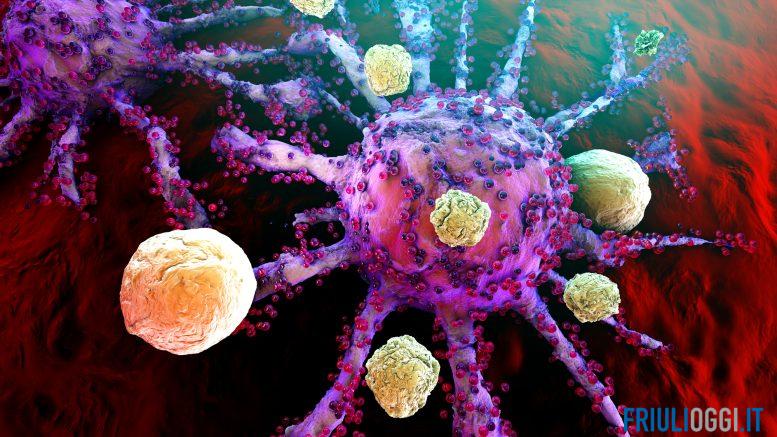Human immunity can successfully resist cancer even in advanced stages. Therefore, cancer immunotherapy is becoming an increasingly important area of oncology, and scientists around the world are making great efforts to develop new immunotherapy techniques. German Cancer Clinics are already successfully using monoclonal antibodies, immune checkpoint inhibitors, and cancer vaccines.
CAR T-cell therapy is regarded as one of the most significant advances in medicine in recent years. It has been successfully used for leukemias, multiple myelomas, and lymphomas. The technique is gradually being improved. More and more clinical trials are being conducted, so the indications for its use are expanding. In the near future, T-cell immunotherapy in Germany can be expected to be used for many other types of cancer.
How does CAR T-cell therapy work?
Immune cells can destroy cancer, but they do not because they do not recognize the tumor well. They can be helped. To do this, cells are removed from a person’s body, modified, propagated, and then injected intravenously. As a result, T-cells become more aggressive against cancer. They attack all tumors in the body, shrinking their size or even destroying them completely.
The treatment method is both immunotherapy and gene therapy because the genes of immune cells are changed in the laboratory. Chimeric antigen receptors (CARs) are added to them, which help T-cells attach to a tumor-specific antigen.
Different tumors have different genes. Accordingly, each chimeric antigen receptor is unique and designed to fight a specific type of cancer.
What is the process of treatment?
T-cell immunotherapy cancer treatment takes several weeks.
First, T-cells are taken from a person. They are obtained by leukapheresis. The blood is passed through a special machine that selects the desired cells and returns the rest back to the patient’s body. The procedure takes 2-3 hours.
The cells are then sent to the laboratory. They are modified there. Successful cancer therapy necessitates a large number of cells, far more than can be obtained from the patient’s body during leukapheresis. Therefore, the cells multiply within a few weeks.
A few days before the injection of T-cells, the patient is prescribed chemotherapy. It reduces the production of the patient’s own immune cells so that they do not interfere with the modified cells’ ability to fight cancer. Low dosages of drugs are usually used. It is important not to shrink the tumors too much. T-cells work better when there are many cancer cells in the body that need to be attacked.
The T-cells are then injected into the person’s body using an intravenous infusion. For several days, the person stays at the hospital under medical supervision, so that if complications develop, doctors can help them.
Side effects
Most patients tolerate T-cell therapy well, but complications and side effects do occur.
Cytokine release syndrome is a common inflammatory response in the body. It is manifested by fever, diarrhea, vomiting, headache, increased heart rate, muscle pain, and fatigue. All these manifestations are the same as with the flu, but sometimes worse.
Side effects from the nervous system include dizziness, headaches, impaired consciousness, convulsions, trembling fingers, and impaired speech. Symptoms go away within a few weeks.
The benefits of T-cell therapy outweigh the potential harm, as this method is used for the most aggressive forms of cancer when no other treatments work anymore. If you want to use this technique, you can contact one of the German hospitals. You are welcome to visit the Booking Health website to find out the cost of treatment and choose a medical care program at the best price. The specialists at the Booking Health company will help you find the most suitable hospital and take care of all the arrangements for your trip.





